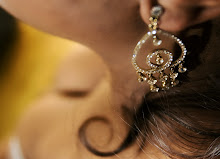“Feminine virtue is nothing but a convenient masculine invention.” -Ninon de L’Enclos
Born Anne de L’Enclos in 17th century France, she gained the nickname Ninon from her pleasure-loving father. Ninon took after him more than her devoutly Catholic mother. The de L’Enclos family were impoverished aristocrats and so after her father was exiled after losing a duel and her mother’s death, Ninon was shipped off to a convent. By then, however, Ninon was a very beautiful young woman and forming her own philosophy of Epicurean pursuits. She was also a dedicated secularist and heretic by then, even spontaneously singing a bawdy song during a Holy Week sermon. After she got out of the convent, she headed to Paris and started a career as a courtesan.
She quickly became known for her wit as well as her beauty. Ninon’s salons were the most popular in Paris and became well known in other parts of Europe. Among the attendees were La Rouchefoucauld, Racine, Saint-Évremond and Molière. Her lovers were nobles, even royalty, as well as other wits of the day. While Cardinal Richelieu adored her, Queen Anne of France didn’t and sent her off to yet another convent. However, she was so missed at court that Queen Christina of Sweden wrote to Cardinal Mazarin to obtain her release. So valued was her counsel that King Louis XIV inquired after her opinion, “What does Ninon think?” he would say.
She served as a muse and a critique for Molière. In her career, Ninon wrote published poems and a satire called The Coquette Avenged (La Coquette Vengee), attacking the sexual hypocrisy of the day. Ninon was definitely a proto-feminist from even her early life, deciding as a child to “turn herself into a man” to take advantage of the “thousands of privileges that men do not enjoy”; an honnête homme, a man of honor, gallantry and truth. But this she combined with her overwhelming, unabashed femininity, later crediting this intoxicating combination of the sexes, the androgyny, to her popularity and success. More than this, Ninon condemned the position of women in society, denouncing the treatment of women by men and other women and the ignorance, especially erotically of women.Ninon observed that women were “rendered stupid in love” and harassed by men and others of their own sex.
Ninon died comfortably at the age of 85. She became the posthumous subject of several plays, novels and old wives’ tales as well as the icon of beauty products all around France. Thanks to a provision in her will leaving a thousand francs to a nine-year old young boy named François-Marie Arouet to purchase books, we, the world, were blessed with the wit and wisdom of Voltaire. Most importantly for me, she provided an excellent namesake and professional and personal inspiration.
For more information on Ninon de L’Enclos see:
The Book of the Courtesans by Susan Griffin
Seductress: Women Who Ruled the World and their Lost Art of Love by Betsy Prioleau
Jazz Babies- Ninon de l’Enclos
Ninon de L’Enclos: Philosopher and Courtesan: A Grand Siècle Celebrity
Life, Letters and Epicurean Philosophy of Ninon de L’Enclos by Ninon de L’Enclos (in English)

No comments:
Post a Comment